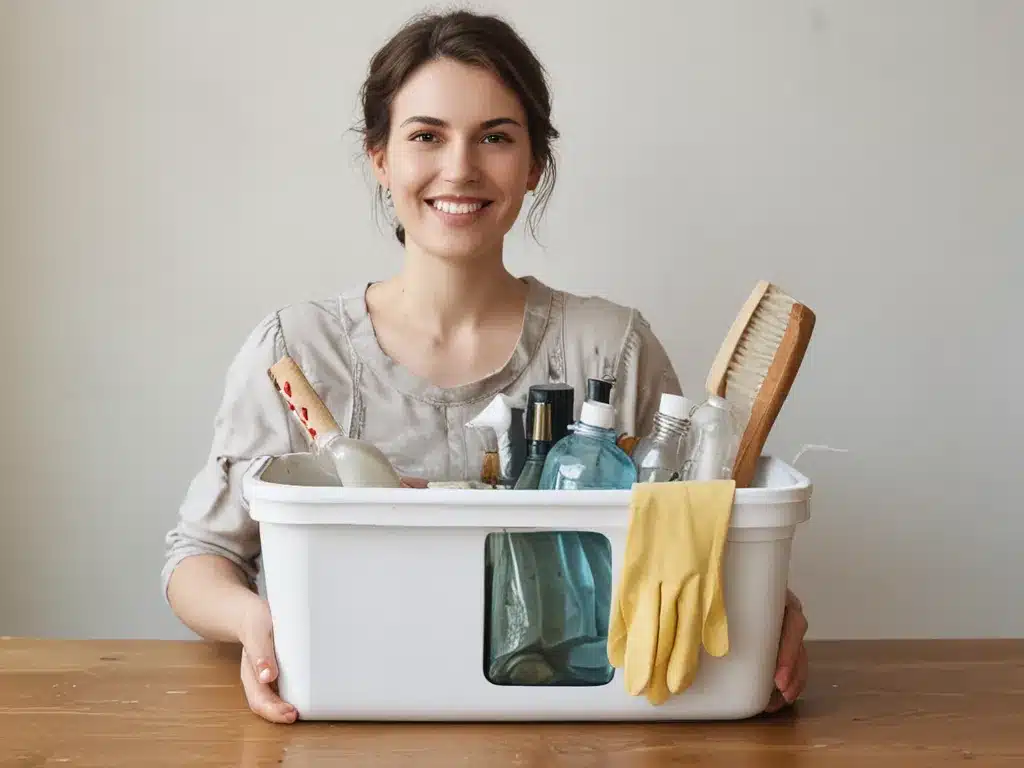Introduction
Transitioning to a zero waste lifestyle can seem daunting, but creating a zero waste cleaning routine is an easy place to start. With a few simple swaps and DIY solutions, I can reduce plastic waste and exposure to toxic chemicals in my home. Here are 7 steps to get started on my zero waste cleaning journey.
1. Replace disposable products with reusable alternatives
The first step is to take inventory of my current cleaning supplies and replace disposable products with reusable options. Here are some simple swaps I can make:
- Paper towels → Reusable rags, towels, and unpaper towels
- Plastic garbage bags → Reusable bags or a garbage-less system
- Disposable wipes → Reusable cloths
- Plastic spray bottles → Glass bottles with reusable sprayers
This allows me to eliminate single-use plastics and paper waste. Reusable cloths and spray bottles can be easily cleaned and refilled, reducing my environmental impact.
2. Make my own DIY cleaners
With reusable supplies ready, I can now make my own effective DIY cleaners using simple natural ingredients. Here are some easy homemade options:
- All-purpose cleaner: Mix white vinegar, water, and essential oils in a spray bottle.
- Window/glass cleaner: Combine equal parts vinegar and water.
- Disinfectant: Mix hydrogen peroxide, vinegar, and essential oils.
- Drain cleaner: Pour baking soda and vinegar down drains.
Making my own cleaners prevents plastic waste from store-bought cleaners. Plus, I can avoid toxic chemicals found in conventional cleaners.
3. Use natural cleaning ingredients
In addition to vinegar, baking soda, and hydrogen peroxide, there are many other natural ingredients I can use:
- Lemon cuts grease and whitens.
- Castile soap dissolves dirt and grease.
- Essential oils like lavender and tea tree add antibacterial properties.
- Salt acts as a gentle scrub.
- Club soda can be used to clean windows and other surfaces.
Relying on natural cleaning ingredients is safer for my health and generates less waste compared to chemical cleaners.
4. Opt for package-free cleaning tools
Many cleaning tools and accessories come wrapped in plastic. Here are some package-free options I can seek out:
- Metal scrub brushes instead of plastic bristle brushes
- Wood-handled brooms and mops rather than plastic varieties
- Cloth dish scrubbers and sponges instead of disposable plastic ones
- Bar soaps rather than liquid hand soap in plastic dispensers
Choosing package-free tools reduces plastic waste. Many of these items can also be composted at the end of their lifespan.
5. Use reusable mop pads and rags
Instead of single-use paper towels or disposable mop heads, I can use:
- Reusable cloths cut from old towels or t-shirts
- Microfiber cloths and mop pads that can be washed and reused
- Unpaper towels made of reusable fabric sheets
Having a stash of reusable rags and mop pads means I don’t have to create paper towel waste each time I clean. I can simply throw them in the laundry to use again.
6. Compost natural cleaning ingredients
Many natural cleaning ingredients like lemon rinds, essential oils, and salt can be composted. I can set up a small compost bin or jar specifically for compostable cleaning scraps.
Composting these natural materials keeps them out of the trash and allows their nutrients to be reused.
7. Share my experience!
Once I’ve created my own zero waste cleaning routine, I can inspire others by sharing my experience. Here are a few ways I can spread the word:
- Post before and after photos on social media
- Make DIY cleaner gift baskets for family and friends
- Write a blog post detailing my favorite swaps and recipes
- Lead a zero waste workshop in my community
Educating others on small steps like zero waste cleaning helps drive larger collective change. We can build less wasteful communities together!
Conclusion
The key steps to a zero waste cleaning routine are: replacing disposable products with reusables, making my own DIY cleaners, using natural cleaning ingredients, choosing package-free tools, using reusable rags and mop pads, composting scraps, and sharing my experience. With some simple swaps and creativity, I can eliminate plastic waste and toxic chemicals from my cleaning habits. A zero waste lifestyle takes commitment but is highly rewarding. My home and health will benefit from natural cleaning methods. And I can inspire friends and family to join me on this sustainable journey!







